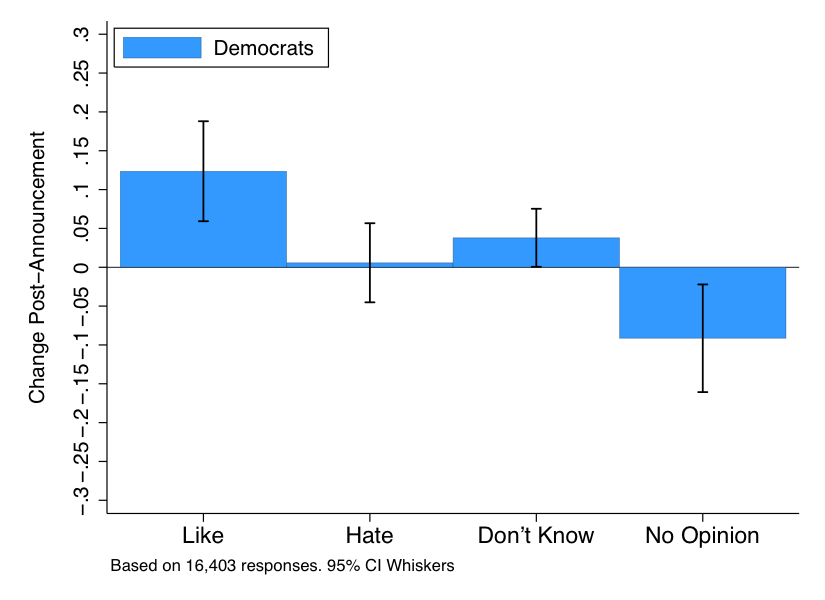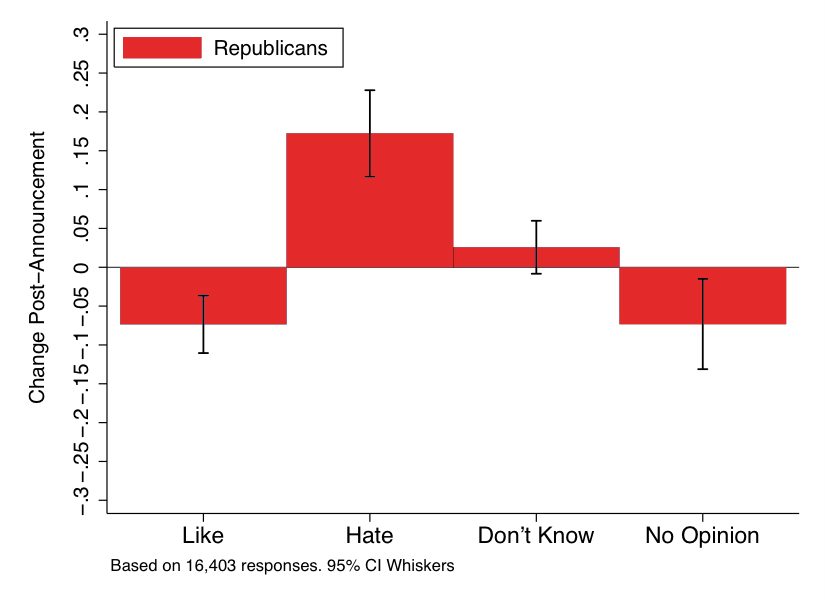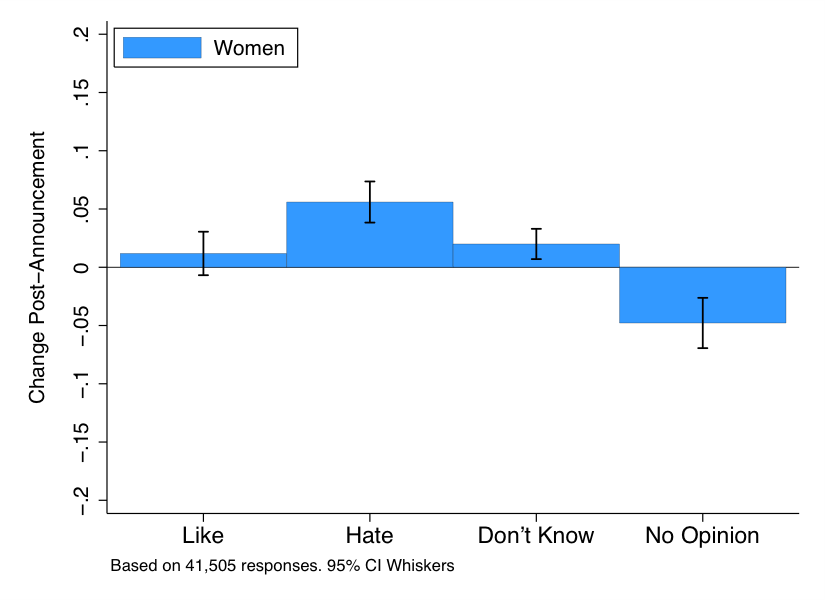GUEST POST BY:
Lamar Pierce – Associate Professor of Organization and Strategy, Washington University in St. Louis
Aaron Chatterji – Associate Professor, Duke University
Ivanka Trump’s brand reported an over 300% sales increase in the month of February. Does this mean Nordstrom’s decision to drop it is costing them sales? Not likely, indicates new analysis using data from CivicScience. Even the ire of a President may not cost a company much if it only influences customers that would never shop there anyway.
The January brouhaha between President Donald Trump and Nordstrom represents the “new normal” for American business. Companies are increasingly being drawn in to political debates, either proactively via CEO activism from their own top management or involuntarily, as when Boeing and Lockheed recently got caught in the new President’s crosshairs. Historic rates of political polarization, supercharged by social media, are seeping into consumer attitudes. Consumers are looking to know where companies stand on the issues, and companies ought to be adding data surrounding political attitudes to their existing customer profiles.
This brave new world is still uncharted. We still do not know much about how this new political environment is actually shaping consumer attitudes or purchasing decisions. Trending hashtags on Twitter or online petitions organizing boycotts may have real impact or they may not. Each company is going to strategize around politically attuned and divided customers in different ways. For example, Nordstrom caters to wealthier consumers, while Target positions itself as more of a “middle out” offering, trying to hit the sweet spot for middle-class families. Why does this brand positioning matter when these companies are ensnared in controversies like the Ivanka Trump affair or the petition to boycott Target over its bathroom policy?
Think about it like this. Nordstrom cares a lot about moving potential consumers from “indifferent” to “passionate”. Target, on the other hand, wants to make sure “indifferent” consumers, who still shop at their stores for staples, do not turn to “hostile”. That is a big difference that impacts how they respond when business and politics mix.
This logic might explain why Nordstrom did not back down in its recent confrontation with President Trump, while Target quickly announced it was building new bathrooms when it was challenged by activists.
Data from CivicScience provides an interesting window into how this dynamic unfolds from Nordstrom’s perspective. Let’s look at Democrats and Republicans responded to the Trump controversy separately first.
It appears that there was a shift in Democrats who “like” Nordstrom after their run-in with President Trump. Importantly, this increase seems driven from people who previously had no opinion.
Now look at Republican attitudes towards Nordstrom:
As expected, a lot more Republicans now hate the venerable retailer. But how many would have really shopped there anyway? It looks like a sizeable portion of the movement came from consumers who had no opinion (i.e. not going to Nordstrom anyway).
Thus, even though Nordstrom took a social media beating, the shift in customers that matter most (those who now like them) could actually be a net positive for the company.
Let’s look at one demographic cut of the data – women – a group that Nordstrom focuses heavily on.
This chart includes both Republicans and Democrats. While we see that there appears to be an uptick in hatred for Nordstrom, most of it came from women who were indifferent before the controversy. These women probably were not shopping at Nordstrom before and were not going to be persuadable anyway. In fact, Ivanka Trump’s recent statement that she was ending her high-end jewelry line to focus on low-priced products confirms exactly what the CivicScience data are saying. Trump’s customer base is shifting down-market, precisely away from Nordstrom’s core demographics.
It is data like these that might tell us why Nordstrom stood behind its decision to drop the Trump brand. And it is just one more reminder that the impact of political controversies on brands really occurs at the “micro” level. The risks and rewards of being politically active are different depending on who your customers are and what their political views are.
Interested in similar insights? Check out 8 brands that should get involved in politics, why The New York Times should send Donald Trump a thank you card, and on growing political interest among Millennials.











